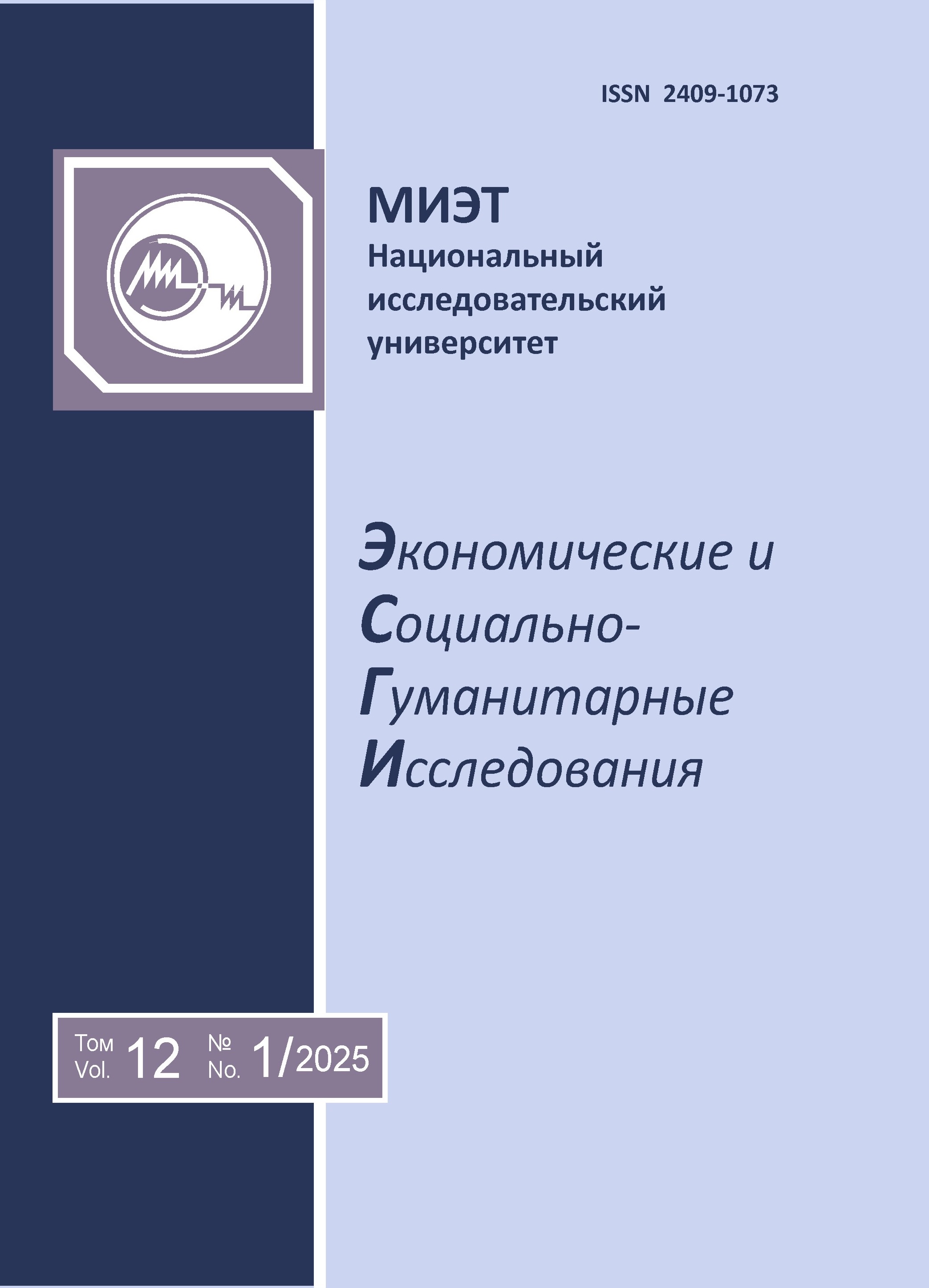employee from 01.01.2014 until now
Moscow, Russian Federation
UDC 129
In this work, it is noted that in vast majority of modern publications, overcoming is understood as way of handling many other study subjects, while much less frequent are the cases of contemporary thinkers focusing their studies on Overcoming itself as philosophical category. The author presents the results of preliminary scoping review conducted from April to December 2024 to find out which aspects of problem of Overcoming were considered in the works of Russian philosophers from the second half of 20th century to first decades of 21st century and if there is or was interest in this issue in publications in French an in English. The author conducted literature search in databases Google Scholar, Semantic Scholar, eLibrary.Ru and in e-catalog of Russian State Library to find relevant peer-reviewed and non-conventional literature. It was found that 23 articles and 6 contemporary republications of works of founders of philosophical schools of thought, the total of 29 sources, meet the survey entry criteria. It has been established that the sense of going outside limits, trespassing boundaries is common for all exposed aspects of studying the problem of Overcoming; with that, very few publications (by only one philosopher) consider Overcoming as part of metaphysics of death, and other sources’ authors treat the issue as philosophical category as well as one of subjects of psychology, which makes it possible to plan further studies of interdisciplinary nature.
Overcoming, transcendence, Aufhebung, dépassement, philosophical studies, scope of study
1. Andriyenko E. V., Romanova A. S. “Internal Factors of Personal Self-Development in the Philosophical Dimension”. Ekonomicheskie i sotsial’no-gumanitarnye issledovaniya = Economic and Social Research 2 (42) (2024): 84—92. (In Russian). https://doi.org/10.24151/2409-1073-2024-2-84-92
2. Bezrukov I. “Features of Understanding of the Kyoto School Philosophy in Russian Oriental Studies”. Izvestiya Rossiiskogo gosudarstvennogo pedagogicheskogo universiteta im. A. I. Gertsena = Izvestia: Herzen University Journal of Humanities & Sciences 99 (2009): 103—108. (In Russian).
3. Berdyaev N. A. The Meaning of the Creative Act. The Experience of Justification of Human. Moscow: Yurait, 2017. 256 p. (In Russian). Antologiya mysli.
4. Hegel G. W. F. The Science of Logic. Transl. G. Di Giovanni. Cambridge: Cambridge Up, 2015. 866 p. Cambridge Hegel Translations.
5. Gizha A. V. “Genesis of Reflexive-Conceptual Activity as the Beginning of Overcoming Practical Need”. Filosofiya i kul’tura = Philosophy and Culture 6 (2017): 110—119. (In Russian). https://doi.org/10.7256/2454-0757.2017.6.12625
6. Gribakin A. V. “Philosophy as Overcoming of Oneself”. Novye idei v filosofii 2.20 (2012): 116—119. (In Russian).
7. Comte-Sponville A. Dictionnaire philosophique. Paris: Presses Universitaires de France, 2001. 646 p. (In French).
8. Krivitskii L. V. Problem of Overcoming Gnosiological Limitation of Human Perception: Dissertation abstract. Cand. Sci. (Philos.). Minsk, 1986. 19 p. (In Russian).
9. Lipovaya L. P. Victory and Defeat: Existential and Ontological Analysis: Dissertation abstract. Dr. Sci. (Philos.). Rostov-on-Don, 2003. 47 p. (In Russian).
10. Maslyanka J. V. “The Basic Question of Philosophy and Social Practice: On the Role of Fundamental Philosophical Theory in Overcoming Social Crises”. Novye idei v filosofii 7 (28) (2020): 52—62. (In Russian).
11. Matsyna A. I. “Culture of Overcoming in Myth: Spiritual Space”. Vestnik Chelyabinskogo gosudarstvennogo universiteta = Bulletin of Chelyabinsk State University 13 (409) (2017): 33—42. (In Russian).
12. Matsyna A. The Metaphysics of Overcoming — Propaedeutics: monograph. Transl. from Russ. N. S. Mustafina. 2nd ed., correct. and augm. Chelyabinsk: Chelyabinsk State Up, 2019. 283 p. (In Russian and English).
13. Matsyna A. I. Death as Ontological Category: Metaphysics of Death: Dissertation abstract. Cand. Sci. (Philos.). Chelyabinsk, 2006. 21 p. (In Russian).
14. Popov I. N. Metaphysics of Absolute Dualism: An Oratorio of the Overcoming. Barnaul: Azbuka, 2010. 290 p. (In Russian).
15. Reznik Yu. M. “Human and His / Her Borderland: Between Existence and Transcendence”. Voprosy sotsial’noi teorii = Scientific Almanac Questions / Issues of the Social Theory 6 (2012): 25—45. (In Russian).
16. Romanenko A. S. “Nishida Kitarō’s An Inquiry into the Good: Modes of Overcoming the Empirical Oppositions”. Voprosy filosofii 7 (2023): 196—202. (In Russian). https://doi.org/10.21146/0042-8744-2023-7-196-202
17. Rubinshteyn S. L. Human and the World. Afterw. by K. A. Abul’khanova-Slavskaya, A. N. Slavskaya. Moscow: Nauka, 1997. 189, [2] p. (In Russian). Pamyatniki psikhologicheskoy mysli.
18. Savintsev V. I. Problem of Time in the Personalism of N. A. Berdyayev: Dissertation abstract. Cand. Sci. (Philos.). Kaliningrad, 2006. 17 p. (In Russian).
19. Sulimov V. A. “Self-Transcendence and Overcoming: Aspects of Semantic Activity”. Chelovek. Kul’tura. Obrazovanie = Human. Culture. Education 1 (27) (2018): 40—48. (In Russian).
20. Tikhonova E. V., Shlenskaya N. M. “Scoping Review as a Method for Synthesizing Scientific Data”. Khranenie i pererabotka sel’khozsyr’ya = Storage and Processing of Farm Products 3 (2021): 11—25. (In Russian). https://doi.org/10.36107/spfp.2021.257
21. Frolov I. T, ed. Philosophical Dictionary. 7th ed., rev. and upd. Moscow: Respublika, 2001. 719 p. (In Russian).
22. Chelyshev P. V. “Transcending as a Way and a Purpose of Human Life”. Mezhdunarodnyi zhurnal prikladnykh i fundamental’nykh issledovanii 5-1 (2016): 145. (In Russian).
23. Alvis J. W. “Bad Transcendence: Wahl, Anders, and Jaspers on the Dangers of Overcoming”. Bogoslovni vestnik 77 (3/4) (2017): 545—554.
24. Fujita M., ed. Philosophy of the Kyoto School. Singapore: Springer, 2018. xv, 273 p. https://doi.org/10.1007/978-981-10-8983-1
25. Habermas J. Knowledge and Human Interest. Transl. J. J. Shapiro. Rpt ed. Boston: Beacon Press, 1972. 368 p.
26. Haynes P. Immanent Transcendence: Reconfiguring Materialism in Continental Philosophy. London: Bloomsbury, 2014. 224 p. Bloomsbutry Studies in Continental Philosophy.
27. Irigaray L. The Mediation of Touch. Cham: Palgrave Macmillan, 2024. 408 p.
28. Kovacs G. “Phenomenology of Work and Self-Transcendence”. Journal of Value Inquiry 20 (1986): 195—207. https://doi.org/10.1007/BF00148299
29. Le T. N., Levenson M. R. “Wisdom as Self-Transcendence: What’s Love (& Individualism) Got to Do with It?”. Journal of Research in Personality 39.4 (2005): 443—457. https://doi.org/10.1016/j.jrp.2004.05.003
30. Lefebvre H. Métaphilosophie. Paris: Ed. de Minuit, 1965. 336 p. (In French).
31. Lefebvre H. Metaphilosophy. Transl. D. Fernbach. London: Verso, 2016. 384 p.
32. Schroeder B. “Dancing through Nothing: Nietzsche, the Kyoto School, and Transcendence”. The Journal of Nietzsche Studies 37 (2009): 44—65.
33. Shepherd G. J. “Communication as Transcendence”. Communication as…: Perspectives on Theory. Eds. G. J. Shepherd, J. St. John, T. Striphas. Thousand Oaks, CA: Sage Publ., 2006. 22—30.
34. Washburn M. “Two Patterns of Transcendence”. Journal of Humanistic Psychology 30.3 (1990): 84—112. https://doi.org/10.1177/0022167890303005








